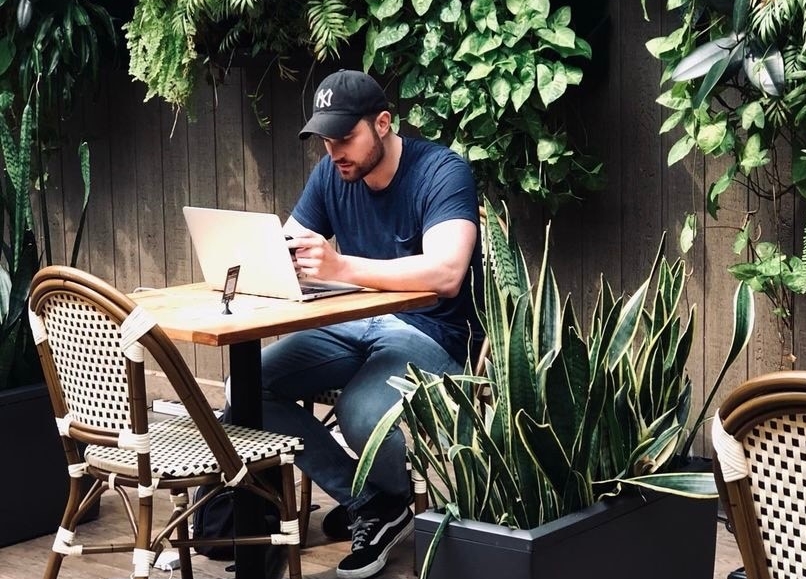Lately the company has focused on helping restaurants and bars use its system, helping to create a new revenue stream out of their disused off-hours: Workden assesses a space’s ability to create a business-with-a-business — the coworking space — that can be set up and taken down quickly without being invasive, and meets whatever requirements there may be from fire codes to WiFi access.
“There are a lot of moving parts, a lot of stakeholders and a lot of scheduling, but we’re extremely agile,” says Regimbal of the company’s juggling of the hosts, members and its own operations. “But every day we improve the system. Once you nail the recipe, the playbook, you can replicate that model and scale it aggressively. That’s the stage we’re at now.”
Picking up speed
Since gradually launching his company over the last two years with a skeleton crew, Regimbal is now neck-deep into developing Workden’s reach alongside a core team, advisors and a team of dedicated Concordia students and interns working with the company, partly with support from District 3 Innovation Hub.
What started with 650 customers before shutting down for the pandemic has since expanded to 3,000 repeat users — and continues to expand — with corporate contracts in motion and an in-person school year underway.
“Our target market isn’t just freelancers or startup teams coming out of accelerator programs who can’t afford an office space, it’s everybody,” Regimbal explains. “It’s an all-inclusive community — anybody from different industries. It’s creating spaces within spaces to go to work, connect, maybe have that brilliant idea.”
Lessons learned at Concordia
Is it disruption? Retrofitting? Both? “Disruption’s the sexy word people use these days, but Workden is just a logical response,” Regimbal says. “I looked at the business model [of real estate] and saw that there’s this gap.” Inspired by lean thinking — a system aimed to create benefits by eliminating waste — the CEO says it was a major takeaway from his time studying project management at Concordia.
“You get exposed to so much there,” Regimbal remembers, having returned in 2020 to judge ENGCOMM, the Engineering and Commerce Case Competition that Concordia hosts, as well as an entrepreneurship competition, part of Engineering Week, alongside alumna Gina Cody, MEng 81, PhD 89, benefactor of the Gina Cody School of Engineering and Computer Science.
“It’s a very connected community. I have friends from so many disciplines which to this day I’ve called on, as alumni, to work with,” Regimbal says. “When you work in business, you’ll be working with everyone involved. Don’t stay in your box: It’s important to understand who can lend you knowledge as well as what you can lend to them.”
 “When you go into a Workden, you’re guaranteed to have an experience that’s consistent, but the atmosphere is different, and that’s what’s unique about it," says company co-founder and CEO Steven Regimbal, BComm 14.
“When you go into a Workden, you’re guaranteed to have an experience that’s consistent, but the atmosphere is different, and that’s what’s unique about it," says company co-founder and CEO Steven Regimbal, BComm 14.
 Lean thinking — a system aimed to create benefits by eliminating waste — was a major takeaway from Regimbal's time studying project management at Concordia.
Lean thinking — a system aimed to create benefits by eliminating waste — was a major takeaway from Regimbal's time studying project management at Concordia.


